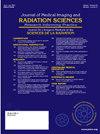通过医疗指令授权高级实践放射治疗师:加拿大放射治疗的进步步骤
IF 1.3
Q3 RADIOLOGY, NUCLEAR MEDICINE & MEDICAL IMAGING
Journal of Medical Imaging and Radiation Sciences
Pub Date : 2025-05-17
DOI:10.1016/j.jmir.2025.101898
引用次数: 0
摘要
未来的医疗保健工作人员将继续面临诸如医生短缺、卫生人力资源限制、人口老龄化和治疗复杂性增加等挑战,这促使放射肿瘤学等领域出现创新方法。世界卫生组织建议将任务转移,在跨学科团队中重新分配职责,作为解决这些问题的办法。采用任务转移的一种有效方法是通过使用医疗指示和授权,增加患者获得护理的机会并减轻医生的负担。在放射肿瘤学中,具有专业技能的高级实践放射治疗师(APRTs)可以很好地接受委托,允许自主管理/完成额外的职责,这有利于患者,团队和医疗保健系统。aprt需要先进的知识、技能和判断力来有效地执行这些指令和委托。他们必须接受严格的培训,包括需求评估、涉众咨询和绩效准备评估。本文讨论了APRTs如何将医疗指令实施到实践中(使用PEPPA(参与式,循证,以患者为中心的APN角色开发,实施和评估过程)框架)。加拿大医疗放射技师协会(CAMRT)的APRT(T)能力概况概述了通过使用适当的授权、指令、综合培训计划和适当的文件/批准流程可以实现的全部实践范围。医疗指令和委托可提高医疗效率、优化工作流程并加强患者护理,使aprt在应对卫生人力资源挑战方面发挥关键作用。这些实践的实施可以促进自主和专业发展,最终有利于医疗保健系统和改善患者的结果。本文章由计算机程序翻译,如有差异,请以英文原文为准。
Empowering advanced practice radiation therapists through medical directives: A progressive step in radiation therapy in Canada
The future of the healthcare workforce continues to face challenges such as physician shortages health human resource constraints, an aging population, and increasing treatment complexities, prompting innovative approaches in fields like radiation oncology. The World Health Organization suggests task shifting, redistributing duties within interdisciplinary teams, as a solution to these issues. One effective method to employ task shifting is through the use of medical directives and delegations, enhancing access to care for patients and easing physician burdens. In radiation oncology, advanced practice radiation therapists (APRTs) with specialized skills are well-positioned to receive delegations, allowing for autonomous management/completion of additional duties which benefit patients, the team, and the healthcare system.
APRTs need advanced knowledge, skills, and judgment to execute these directives and delegations effectively. They must undergo rigorous training, including needs assessments, stakeholder consultations, and performance readiness evaluations. This paper discusses how APRTs implement medical directives into practice (using the PEPPA (Participatory, Evidence-informed, Patient-centred Process for APN role development, implementation and evaluation) framework). The Canadian Association of Medical Radiation Technologists’ (CAMRT) APRT(T) competency profile outlines the full scope of practice that can be achieved with the use of appropriate delegations, directives comprehensive training programs, and proper documentation/approval processes. Medical directives and delegations improve healthcare efficiency, optimize workflows, and enhance patient care, positioning APRTs to be pivotal in addressing health human resource challenges. Implementation of these practices may promote autonomy and professional growth, ultimately benefiting the healthcare system and improving patient outcomes.
求助全文
通过发布文献求助,成功后即可免费获取论文全文。
去求助
来源期刊

Journal of Medical Imaging and Radiation Sciences
RADIOLOGY, NUCLEAR MEDICINE & MEDICAL IMAGING-
CiteScore
2.30
自引率
11.10%
发文量
231
审稿时长
53 days
期刊介绍:
Journal of Medical Imaging and Radiation Sciences is the official peer-reviewed journal of the Canadian Association of Medical Radiation Technologists. This journal is published four times a year and is circulated to approximately 11,000 medical radiation technologists, libraries and radiology departments throughout Canada, the United States and overseas. The Journal publishes articles on recent research, new technology and techniques, professional practices, technologists viewpoints as well as relevant book reviews.
 求助内容:
求助内容: 应助结果提醒方式:
应助结果提醒方式:


